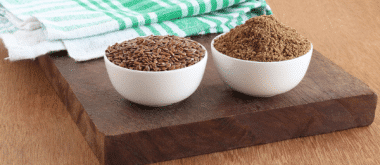Working swing shifts makes it hard to get good sleep, and it could even damage your health. Here’s what you need to know about the risks of shift work.
The Problem With Shift Work
Do you work an unusual shift that requires you to stay up late or get up very early? If you work a shift that falls outside the traditional “day shift” hours of 6 a.m. to 6 p.m., your health could be suffering, especially if you’ve worked unusual shifts for years on end.
Researchers are unsure of exactly why shift work can be so detrimental to people’s health, but they believe it has something to do with shift work’s tendency to throw off the body’s internal clock, or circadian rhythm. Nurses, factory workers, police officers, and food service workers are at particularly high risk of experiencing health problems related to working hours. Keep reading to learn more about why ditching that late shift might be the best thing you can do for your health.
Negative Health Outcomes Associated With Working Swing Shifts
The health effects of working an especially late or early shift are well documented, and they aren’t pretty. Shift workers who are on the job for part or all of the night are more likely to have the following issues:
- Obesity
- Diabetes
- Cardiovascular disease
- Lung cancer
- Breast cancer
- Cognitive decline and memory problems
Shift workers are also more likely to smoke cigarettes, eat an unhealthy diet, and experience chronic stress. This may simply be because smoking and snacking are common ways of dealing with stress and boredom. However, these unhealthy lifestyle habits almost certainly play a role in the development of the listed health problems.
How Serious are these Negative Health Outcomes?

How Shift Work Affects Your Body’s Circadian Rhythm
Why does working the late shift affect your body so profoundly? The answer is not fully understood yet, but it has to do with your body’s circadian rhythm.
Your body operates on a 24-hour schedule. You have an “internal clock,” whether you realize it or not. This clock, your circadian rhythm, is what drives many of your biological functions throughout the day. Your circadian rhythm tells your body when to wake up and go to sleep. It also stimulates the release of certain hormones at the correct time of day. For instance, when your circadian rhythm is healthy, it causes your body to release the hormone melatonin (which makes you sleepy) close to the time you go to bed. Besides this, your circadian rhythm is responsible for regulating many of your body’s “housekeeping” tasks, such as regenerating damaged cells.
It’s hard to function well and stay healthy when your circadian rhythm is out of sync with your workday, and that’s the problem that plagues many swing shift workers. Staying awake all night and trying to sleep during the day simply isn’t healthy because it confuses your body. And the older you get, the more damaging this pattern becomes. People naturally tend to sleep less as they age, and when this tendency to sleep less is combined with shift work, older workers may find that they have an increasingly harder time getting high-quality rest.
The Takeaway
Shift workers play an important and often vital role in society, but it’s important not to overlook the health dangers of this type of work. Staying awake and alert for a large portion of the night can throw off your circadian rhythm and make you more vulnerable to a host of serious diseases. If you work at night, consider switching to a day shift if possible to protect your health.





